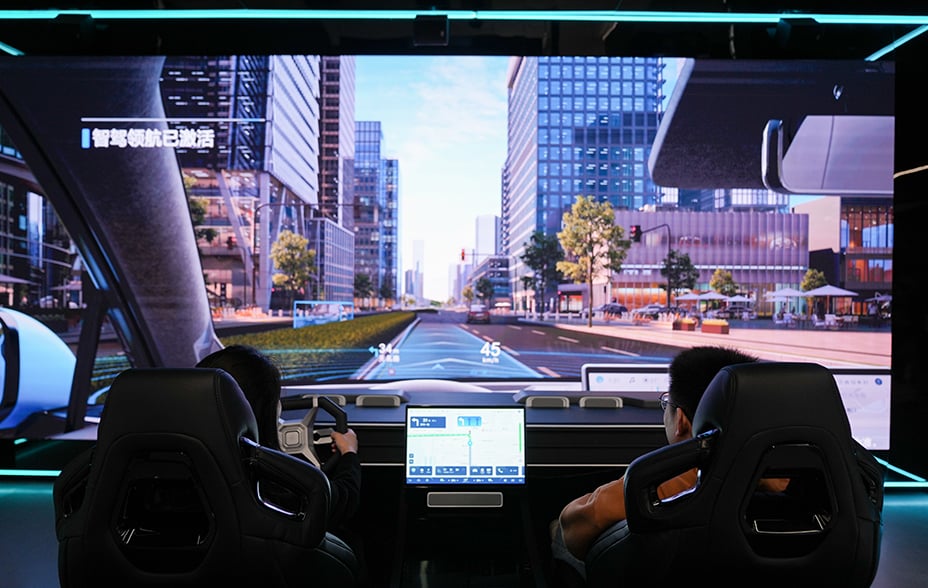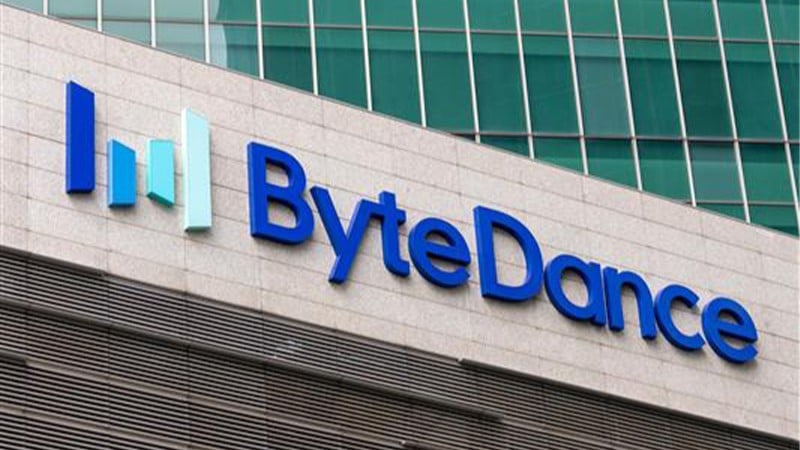November 2024
Article
4 minutes
Tom Slater: Manager Review
Tom Slater – Manager, Scottish Mortgage
- The founders and entrepreneurs leading our portfolio companies are well positioned to seize future opportunities
- The portfolio is poised to harness AI's growth potential with a recent trim to NVIDIA, an addition to Meta Platforms, and a new buy in TSMC
- SpaceX has made remarkable progress with its reusable Starship launch platform

As with any investment, your capital is at risk.
Performance
Since the end of March, our net asset value per share (‘NAV’), with debt at fair value, has increased by 1.9 per cent, compared to a rise of 3.6 per cent for the FTSE All-World Index (both in total return terms). Over the past five years, our NAV has gained 88.9 per cent, outpacing the index’s 66.9 per cent rise. Looking further back, over the last decade, our NAV has grown by 347.8 per cent, compared with 211.3 per cent for the index.
While our primary focus remains long-term capital appreciation, we recognise the importance of providing a consistent dividend to our shareholders. In light of this, the Board is recommending an interim dividend of 1.60p per share, consistent with last year’s interim payment.
Portfolio
Artificial Intelligence
Writing the interim report this year was notably different. I didn’t start by sitting down with a blank page. Instead, AI systems competed to provide me with summaries of the most significant events over the past six months. They tried to explain stock price movements and even suggested topics that might resonate with readers.
The rising quality of their insights could be unsettling, yet I share Professor Ethan Mollick’s belief in “Co-intelligence.” Rather than replacing human creativity, these systems are enhancing our productivity, efficiency, and imagination. Even without further breakthroughs, their impact on business will be profound.
Understanding the implications of this technology wave will be our task for the next decade. Despite growing conviction that generative AI will be a transformative general-purpose technology, we reduced our position in NVIDIA, the leading designer of semiconductors for AI.
The primary challenge hindering large-scale AI adoption remains the high cost. Companies must find ways to offer competitively priced AI systems while managing the skyrocketing costs of training them. This raises concerns about the sustainability of current capital equipment spending, including NVIDIA chips.
Our investment in the AI ecosystem is not limited to NVIDIA. We’ve increased our exposure to Meta Platforms, the parent company of Facebook, Instagram, and WhatsApp. AI will improve Meta’s products and its business model provides many options for funding the necessary computing capacity. Its leadership team has a strong track record of successfully integrating technology innovations, giving us confidence in their strategy moving forward.
Highlights and Challenges
SpaceX has made remarkable progress with its reusable Starship launch platform. Designed for rapid reusability, Starship dramatically reduces launch costs, making space more accessible for a variety of missions.
This capability doesn’t just open new doors for SpaceX, it could redefine what humanity can achieve in space by making projects like lunar exploration, Mars missions, and space tourism more feasible.
One of Starship’s primary impacts will be its support for Starlink, SpaceX’s satellite communication network. With Starship’s high payload capacity, SpaceX can deploy and maintain a vast constellation of Starlink satellites at an accelerated pace.
The company has been steadily increasing the number and capabilities of these satellites, recently adding more powerful models to improve coverage, speed, and reliability.
In parallel, SpaceX has introduced a more affordable Starlink ground terminal, lowering the barrier for users to access high-speed internet in remote or underserved areas. This combination of enhanced satellite infrastructure and accessible ground equipment is set to accelerate the growth of the space-based communications market, potentially connecting millions of people worldwide who previously had limited or no internet access.
While many of our portfolio companies performed well in both operational and stock price terms, two larger positions dampened our overall NAV growth. Moderna, the drug developer, has been underperforming. Its COVID vaccine franchise is in decline, and its new vaccine for respiratory syncytial virus has struggled to compete with established providers.
This is disappointing, and we’re engaging with management to improve execution. However, we remain optimistic about Moderna’s differentiated pipeline of new therapies, which we expect to drive long-term improvement.
Northvolt, the European battery manufacturer has struggled with production delays. It has announced it will lay off 1,600 staff and scale back its expansion plans, cancelling a project to increase its factory’s capacity. The company will need to deliver significant improvements if it is to retain the confidence of its stakeholders and capitalise on the vast opportunity that electrification of our transport system will present over the next decade..

In contrast, Redwood Materials, which focuses on battery recycling, is making encouraging progress. The company is successfully scaling operations in the U.S. and finding enthusiastic buyers for its intermediate products as it builds towards full recycling.
We have added to our investments in electrification by acquiring a stake in Chinese electric vehicle (‘EV’) manufacturer BYD. Despite fierce competition in China’s EV market, BYD’s vertical integration and focus on hybrid vehicles have positioned it as a dominant player with significant international potential. We believe its business will continue to internationalise.
China
Global investors remain hesitant about Chinese companies due to domestic economic struggles and geopolitical concerns. However, we’ve taken a different approach, backing exceptional Chinese companies where we believe the upside justifies the risk.
Our Chinese holdings have been performing well. Meituan, the food delivery company, has been growing at over 20 per cent, improving margins, and Pinduoduo, the ecommerce platform, has achieved explosive growth in export markets. Bytedance, the owner of the Tiktok social media platform, is growing strongly with a big user base and strong monetisation.
As Chinese authorities signal more substantive steps to support consumption, we’ve seen a rally in Chinese assets, though they remain significantly undervalued compared to their Western counterparts.
Emerging Growth Opportunities
Beyond the largest positions in our portfolio, several smaller holdings are making steady progress toward transformational change. Joby Aviation, the electric aircraft company, expects to deliver its second vehicle to the U.S. Air Force by the end of 2024, bolstered by a $500mn investment from Toyota.
Meanwhile, Aurora Innovation, an autonomous trucking company, is on track to launch commercially by the end of the year, with partnerships already in place to scale the business thereafter.
In the quantum computing space, PsiQuantum has secured deals with governments to build its first quantum computers in Australia and Illinois. These advancements illustrate the exciting potential of our younger holdings.
Capital Allocation
We exited several smaller holdings where our growth outlook has changed. These include HelloFresh, as the meal-kit market’s potential seems more limited now, and Zalando, which is facing increased competition from companies leveraging the Chinese supply chain. While Zoom remains best-in-class in communication software, Microsoft Teams’ fierce competition has diminished Zoom’s market opportunity.
We’ve initiated a position in Nu Holdings, a digital bank in Latin America that is rapidly becoming essential infrastructure for customers underserved by traditional banks. It complements our holdings in Sea, Coupang and MercadoLibre, giving us exposure to growing consumption from the world’s emerging middle class.
Our new holding in Hermes International, the French luxury goods company, has the potential to significantly expand its small market share over the next decade while further strengthening its brand and global appeal.

We have reduced our position in ASML, the lithography equipment maker, while initiating a new position in its close partner, TSMC. Both companies are essential to the semiconductor ecosystem, with clear technical and operational advantages over their competitors. This strategic shift reflects our evolving view of the semiconductor landscape and our belief in TSMC’s long‑term potential.
Private Companies: Patience and Impact
Our portfolio includes 23.3 per cent allocation to private companies. No longer included in this allocation is our holding in Tempus AI, which recently went public through an IPO, even in the challenging environment for new listings. Tempus AI focuses on improving cancer outcomes by characterising patients’ disease and recommending personalised treatments and clinical trials. It received substantial funding from Scottish Mortgage while still private – an example of how patient capital can drive impactful change.
While we can’t predict when the funding environment for private companies will improve, we are confident in our portfolio of high-quality growth companies. Many of these companies are self-sustaining, and we remain patient, supportive investors.
Looking Forward
Our world is evolving rapidly, and with change comes opportunity. The founders and entrepreneurs leading our portfolio companies are well-positioned to seize these opportunities. Over the long term, earnings growth drives stock prices, and our portfolio consists of holdings growing much faster than the broader market. We believe that potential is not fully reflected in stock prices today, and we are excited about the returns they can deliver for our shareholders.
Annual Past Performance To 30 September each year (net%)
| 2020 | 2021 | 2022 | 2023 | 2024 | |
| Scottish Mortgage Investment Trust plc | 97.8 | 44.5 | -45.0 | -13.9 | 25.6 |
| FTSE All-World Index | 93.7 | 39.4 | -36.3 | -5.9 | 16.6 |
Source: Morningstar, share price, total return, sterling.
Risk Factors
Unlisted investments such as private companies, in which the Trust has a significant
investment, can increase risk. These assets may be more difficult to sell, so changes in
their prices may be greater.
The Trust invests in emerging markets, which includes China, where difficulties with market volatility, political and economic instability including the risk of market shutdown, trading, liquidity, settlement, corporate governance, regulation, legislation and taxation could arise, resulting in a negative impact on the value of your investment.
The trust invests in overseas securities. Changes in the rates of exchange may also cause
the value of your investment (and any income it may pay) to go down or up.
About the author - Tom Slater
Manager, Scottish Mortgage
Tom Slater is manager of Scottish Mortgage. He joined Baillie Gifford in 2000 and became a partner of the firm in 2012. Tom joined the Scottish Mortgage team as deputy manager in 2009, before assuming the role of Manager in 2015. Beyond that, he is the head of the US Equities team and a member of another long-term growth equity strategy. During his time at Baillie Gifford, Tom has also worked in the Developed Asia and UK Equity teams. Tom’s investment interest is focused on high-growth companies both in listed equity markets and as an investor in private companies. He graduated BSc in Computer Science with Mathematics from the University of Edinburgh in 2000.
Important Information
This communication was produced and approved at the time stated and may not have been updated subsequently. It represents views held at the time of production and may not reflect current thinking.
This content does not constitute, and is not subject to the protections afforded to, independent research. Baillie Gifford and its staff may have dealt in the investments concerned. The views expressed are not statements of fact and should not be considered as advice or a recommendation to buy, sell or hold a particular investment.
Baillie Gifford & Co and Baillie Gifford & Co Limited are authorised and regulated by the Financial Conduct Authority (FCA). The investment trusts managed by Baillie Gifford & Co Limited are listed on the London Stock Exchange and are not authorised or regulated by the FCA.
A Key Information Document is available by visiting our Documents page.
Any images used in this content are for illustrative purposes only.









